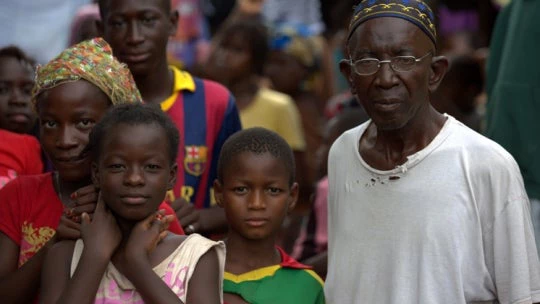
In a couple of days, I’ll join leaders from the worlds of business, governments, politics, arts, and academia at the World Economic Forum in Davos, Switzerland. The Forum is one of the premier events for discussing global risks. Many if not most of these risks are identified in the Forum’s annual Global Risks report.
The report draws on the perspectives of roughly 900 experts and decision-makers answering the Global Risks Perception Survey. For the first time in the report’s 10-year history, economic risks take a back seat to geopolitical concerns, and worries about environmental risks are growing.
Conflict between nations and extreme weather events were seen as the top two risks we face that are most likely to occur, according to the survey. The top risks in terms of impact were water crises and the spread of infectious diseases.
'A year of destiny'
The report is an illuminating glimpse into our risky world. It also highlights our opportunities for action. Professor Klaus Schwab, founder and Executive Chairman of the Forum, says 2015 can be a “year of destiny for humankind.” I agree that we can seize opportunities this year to work more closely together to reduce some long-simmering risks.
For example, in Davos we will be talking with our partners in the multilateral organizations, governments, the private sector and civil society groups about creating a new global pandemic emergency facility that could rapidly respond to pandemics by delivering money to countries in crisis.
Ebola failings
The ongoing Ebola outbreak is a good example of why the world needs this capacity. The global response to Ebola was late, inadequate, and slow. Six months into the crisis, just 30 medical response teams were on the ground, treating and caring for patients in Guinea, Liberia, and Sierra Leone.
The serious shortage of healthcare workers, facilities, and supplies meant many people never received treatment and the virus continued to spread.
At the same time, fear of Ebola hampered trade, shuttered businesses, and restricted travel in the affected countries. In December, we downgraded our growth estimates for the three formerly fast-growing countries. They have taken a major economic hit and we expect they will see negative economic growth in 2015.
A new global pandemic resource
Better preparedness to tackle future pandemics requires investing now both in strengthening public health systems and in prevention efforts throughout the developing world, as well as in new and flexible financing instruments.
A global pandemic emergency facility could mobilize resources from the private and public sectors and frontload financing so that when there’s a global health emergency, financial support would be readily available and flow quickly to support an immediate response at scale. We’ve seen that “passing the hat” around once a pandemic strikes is too costly, both in human lives and in economic terms.
With such a global resource, we could drive forward the development of concrete plans to tackle the next outbreak and get health workers and supplies on the ground, and perhaps even provide an advance market signal for producers of vaccines and drugs.
The Forum’s risk report says robust plans are needed to face the threat of pandemics – especially in light of the rapid growth of cities and informal areas in developing countries, where infectious diseases can more easily spread.
We need to begin planning now for the next pandemic. A pandemic emergency facility could save lives, keep economies resilient, and make our world less risky.
This post originally appeared on the World Economic Forum website.


Join the Conversation